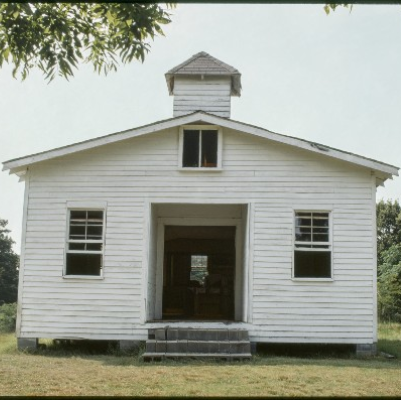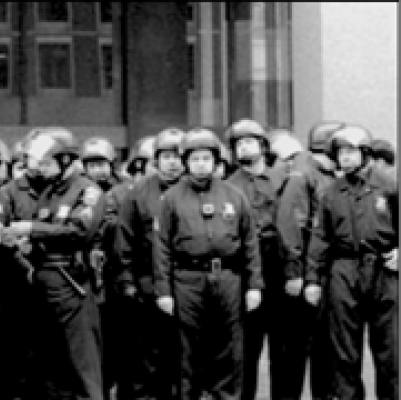Reminiscing in Tempo
*
Memories and Opinion
_____
“Reminiscing in Tempo” is part of a continuing effort to provide Jerry Jazz Musician readers with unique forms of “edu-tainment.” As often as possible, Jerry Jazz Musician poses one question via e mail to a small number of prominent and diverse people. The question is designed to provoke a lively response that will potentially include the memories and/or opinion of those solicited.
Since it is not possible to know who will answer the question, the diversity of the participants will often depend on factors beyond the control of the publisher. The responses from the people who chose to participate in this edition are published below with only minor stylistic editing. No follow-up questions take place.
_____
What three or four songs best epitomize the era of the Civil Rights Movement?
Originally published December, 2007
*
With appreciation to reader W. Kim Heron for the question suggestion
The following songs are all by brilliant artists who made the message their own and delivered songs so powerful you can actually feel it in the music:
The House I Live In — Sonny Rollins
“Lift Every Voice” — Max Roach
March On Selma — Blue Mitchell
“Chattahoochee Red” — Max Roach
Triptych: Prayer / Protest / Peace — Max Roach
_________________
The question you pose is interesting. My answer is:
1. Keep On Pushing, by the Impressions
2. Brother Where Are You?, by Oscar Brown, Jr.
3. Afro Blue, by the John Coltrane Quartet
4. Pirate Jenny, by Nina Simone
People Get Ready, by Curtis Mayfield
A Change Is Gonna Come, by Sam Cooke
Blowin’ In The Wind, by Bob Dylan
________________________________________________________________________________________
The songs I think most epitomize the civil rights movement are:
1. ” We Shall Overcome” — The song is based on an old spiritual called “I Will Overcome.” Zilphia Horton heard it sung by people on strike in Charleston, South Carolina in the 1930s. She brought it back to Highlander Folk Song and changed the pronoun to “We”. The song became the theme song at Highlander. In 1960 young civil rights workers came to Highlander for a workshop, heard the song sung by folksinger Guy Carawan, and from there the song became the theme of the civil rights movement and has gone around the world.
2. “Ain’t Gon’ Let Nobody Turn Me Around” — Another spiritual adapted by civil rights workers to fit the times.
3. “Keep Your Eyes on the Prize” — A spiritual known as “Keep Your Hands on the Plow” An old woman on St. Johns Island, South Carolina, changed the chorus lin-e to “Keep Your Eyes on the Prize”.
Max Roach’s “Freedom Now Suite (Freedom Now)” LP
Marvin Gaye’s “What’s Going On” LP
Aretha Franklin’s “Freedom.”
____________________
Obviously, the Movement could never have succeeded as it did without “We Shall Overcome.” It’s the one absolutely essential song. I would add to it “If You Miss Me from the Back of the Bus” and “They Say That Freedom Is A Constant Sorrow.” I well remember a night in The Gaslight in New York in, say, 1961 when Len Chandler first sang “They Say That Freedom Is A Constant Sorrow.” There was power in those songs that was unstoppable. The racists had no songs to match them.
” A Change Is Gonna Come,” Sam Cooke
“Prayer For Passive Resistance,” Charles Mingus
“Fables Of Faubus,” Charles Mingus
“We Shall Not Be Moved,” (by anyone)
__________________
Henry Grimes
*
Jazz double bassist; recording artist; poet; has recorded with Gerry Mulligan, Sonny Rollins, Thelonious Monk, Anita O’Day, Benny Goodman, Charles Mingus, Cecil Taylor, Don Cherry, Pharoah Sanders, Archie Shepp, Albert Ayler, David Murray, Hamid Drake and many others; author of Signs Along the Road.
[/infobox]
Max Roach’s “Freedom Now Suite (Freedom Now),” with Oscar Brown and with Abbey Lincoln’s unforgettable singing
Jimi Hendrix playing “Star Spangled Banner” at Woodstock (and elsewhere)
Sonny Rollins, ”
Gil Scott Heron, “The Revolution Will Not Be Televised”
“We Shall Overcome,” based on a turn-of-the-2Oth-century gospel song by one Rev. Charles Tindley and updated by various others
Nina Simone’s “Mississippi Goddamn”
Otis Redding, “A Change Is Gonna Come,”
James Brown, “Say It Loud – I’m Black And I’m Proud
While “A Change is Gonna Come” has become the unofficial popular anthem of the civil rights movement in the years since, for me — a teenager at the time — its contemporaneous soundtrack was dominated by Curtis Mayfield’s self-described “songs of inspiration.” These included, “Keep On Pushing,” (’64), “We’re A Winner” (’67), and “Choice Of Colors” b/w “Mighty Mighty [Spade & Whitey]” (’69). Of them, my own favorite is “This Is My Country,” which was released into the swelling black nationalist tide of 1968, and whose inclusivist premise (“. . .we’ll perish unjust or live equal as a nation. . .”) seemed stubbornly counter-cultural at the time. But Curtis’s true intention was revealed in lines imbued with the pride, anger, and dogged hopefulness of grassroots black Americans confronting a society they both hated and loved, and whose original sin was race: “Too many have died, in protecting my pride, for me to go second class/ We’ve survived a hard blow, but I want you to know, that you’ll face us at last. . .”











































